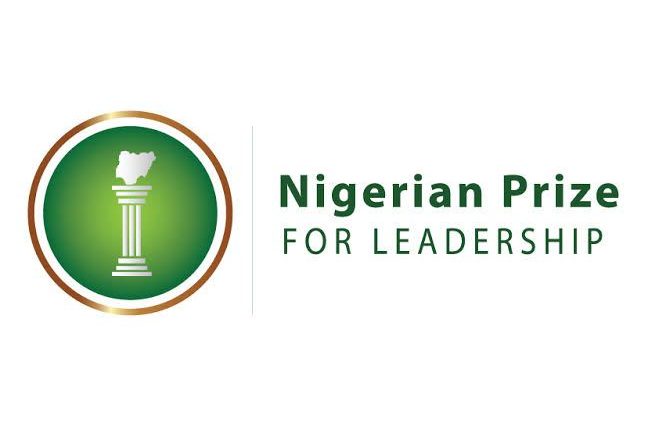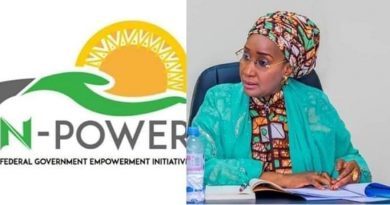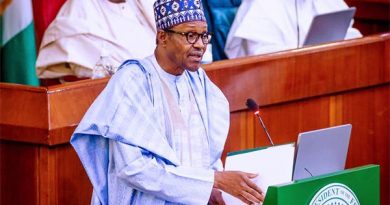NLDS Seeks Transformational Leadership in Nigeria — Economic Confidential

NLDS Seeks Transformational Leadership in Nigeria
…. Explains the 6Cs, 3Es of Quality Leadership
(Being highlights of Contributions, Recommendations and Conclusions at 2nd NPL National Leadership Dialogie Series (NLDS) held on Fridau 26th June 2020)
1.0. PREAMBLE
1.1 Towards its commitment to promote the consciousness of leadership as the pillar for nation building and development, the Nigerian Prize for Leadership, under the leadership of Prof. Anya O. Anya, initiated the National Leadership Dialogue Series (NLDS), in partnership with 19 other Organisations.
1.2 NLDS is a deeply impactful, ideas-driven, and solution-oriented dialogue sessions, with participation cutting across generations and gender. It has Leadership as generic focus, while each edition has a target-theme.
1.3 The 2nd edition, which had the theme, “Rethinking Leadership: Competence, Governance, and Impact on Society – 1”, held on Friday 26th June, 2020 and featured as Panelists, H.E. Dr Christopher Kolade, CON, Vice Chairman, Nigerian Prize for Leadership, and Former High Commissioner of Nigeria to United Kingdom; Prof. Pat Utomi, Founder Center for Values in Leadership; Mrs Toyin Sanni, CEO Emerging Africa Capital Group (representing WIMBIZ Nigeria); and Mr Femi Taiwo, Executive Director LEAP AFRICA.
1.4 The Chairman of the Governing Board, Prof. Anya O Anya, encouraged participants to make effective use of NLDS platform to generate fresh ideas and solutions to Nigeria’s leadership problems, which is eroding the essence of our nationhood.
1.5 In his opening remarks, the Executive Secretary, Nigerian Prize for Leadership, Dr. Ike Neliaku, reemphasised that the National Leadership Dialogue Series (NLDS) was initiated for the benefits of all Nigerians as a strategic intervention that will play an indispensable role in strengthening and elevating efforts by stakeholders, groups, youths, women and men to build a consensus on how to genuinely address the leadership challenges in the nation. The survival of Nigeria depends on good leaders who are committed to giving their all for the growth and development of the nation.
1.6 The dialogue also had in attendance partners from the 19 Partner organisations, including some elderstatesmen and women, academia, professionals, civil society members, youths, students, etc.
2.0. HIGHLIGHT OF CONCLUSIONS OF THE WEBINAR
Arising from contributions from the Panelists, Partners, and other Participants at the Webinar the following conclusions and resolutions were adopted as part of measures to facilitate effective and sustainable leadership reforms in the nation:
2.1 Rethinking leadership in Nigeria, requires change of mindset with comprehensive, serious, and meaningful reorientation of both for those in leadership positions and the citizens. To this end, there is need for a complete shift from the prevailing mindset of transactional leadership to transformational leadership.
2.2 Central to leadership competence is problem solving. Leaders solve problems to impact the society positively. Yesterday’s big problems have become today’s routine because some leaders took responsibility and provided solutions at the material point of need.
2.3 A highly effective leader must be equipped with knowledge and high sense of service. That is what will enable him/her with the right attitude for impact in society. In this connection, the nation needs leaders who see leadership as a sacrificial endeavour, with the relevant capabilities to mobilize citizens trust and commitment, community peace, national growth and development.
2.4 Citizens must begin to interrogate people’s motives for seeking leadership positions. Such motives must be driven by a sense of purpose, and the desire to create impact; not the mere hunger for power, greed, selfish and personal ambition.
2.5 Leaders in Nigeria should be measured by their dispensational ability towards the 6 cardinal Cs of leadership, which are, Competence, Character, Credibility, Capacity, Compassion, and Courage. In addition to the above, other variables should be identified and combined in searching for the ideal leaders in the nation. This would include personal integrity, accountability, exemplary conduct, etc.
2.6 Rethinking Leadership should also engage the 3Es – Education for knowledge, character and responsibility; Entertainment for redesigning, recreating, and representing the Nigerian narrative; and Experience to draw from whenever the situation arises.
2.7 Leaders must be compelled to make themselves available for outreach and communication with their constituents. Such platforms should be transparent and used to empower citizens to effectively hold their leaders accountable.
2.8 Leaders should not just emerge in Nigeria; they should be developed, groomed and raised. Accordingly, the next generation of leaders must be raised through qualitative education, appropriate grooming, and shared leadership experiences. In this wise, Citizens and Leaders must come to terms with the fact that it is in the strategic interest of the nation to pay close and deliberate attention to training and growing the younger generation as a replacement and successor generation. If they are not properly raised, they will eventually and ultimately emerge as leaders and the nation will suffer the consequences of not preparing and making them ready to take leadership. The process should be strengthened so as not to be hijacked by the political class.
2.9 In the face of mounting economic and social challenges, Nigeria needs genuine, trusted, and thinking leaders at all levels, who can truthfully mobilize human and material resources to rescue and resolve the economic downturn.
2.10 Contrary to the seeming culture of democratization of mediocrity in the past 20 years of uninterrupted democracy, the nation should rethink leadership to focus on merit and competence so as to produce the right result and impact on society.
2.11 Leadership happens at every level of responsibility in society; therefore, emphasis should shift from political and organisational leadership, to also emphasise self and family. A leader who has not governed self and family well, may not likely have the emotional stability and competence to lead others effectively.
2.12 Nigeria’s leadership problem is not really about absence of good leaders in the nation, rather, it is much about ambushing and choking of available space by bad leaders to deny time tested and competent leaders of the opportunity to emerge.
2.13 It is time for the nation to review existing methods of sanctions to bring in stiffer mechanisms for punishing bad leaders to serve as deterrent. To this end, it is important that If we must have a Hall of Fame for celebrating good leaders, we must equally, of necessity, establish a Hall of Shame for bad leaders.
2.14 In rethinking leadership in Nigeria, there is a need for urgent actions aimed at bridging the trust gap between citizens and their leaders.
2.15 There is need to rethink leadership recruitment process in the nation, starting with political party system through which leaders eventually emerge. Political Parties have become the weakest link in leadership recruitment in Nigeria, from where clueless and unprepared persons emerge as leaders, without knowing their true leadership responsibilities. How do we strengthen political parties to offer better value addition.
2.16 Rethinking Leadership must include a shift from just saying the right thing to taking the right actions that get the right things done.
3.0. APPRECIATION
The NPL wishes to express its profound gratitude to the Panelists, Partners, and Participants for finding time to share their thoughts on best ways to resolving Nigeria’s and indeed Africa’s leadership challenges. We are very grateful for the depth of knowledge and experiences shared on the issues. We hope to continue with the conversation on Friday 31st July, 2020 for the 3rd Edition of NLDS.
Together, we can resolve Nigeria’s Leadership question in this generation.
Thank you
Signed
Prof. Anya O. Anya
Chairman, Governing Board
Dr Ike Neliaku
Executive Secretary
27th June, 2020)





